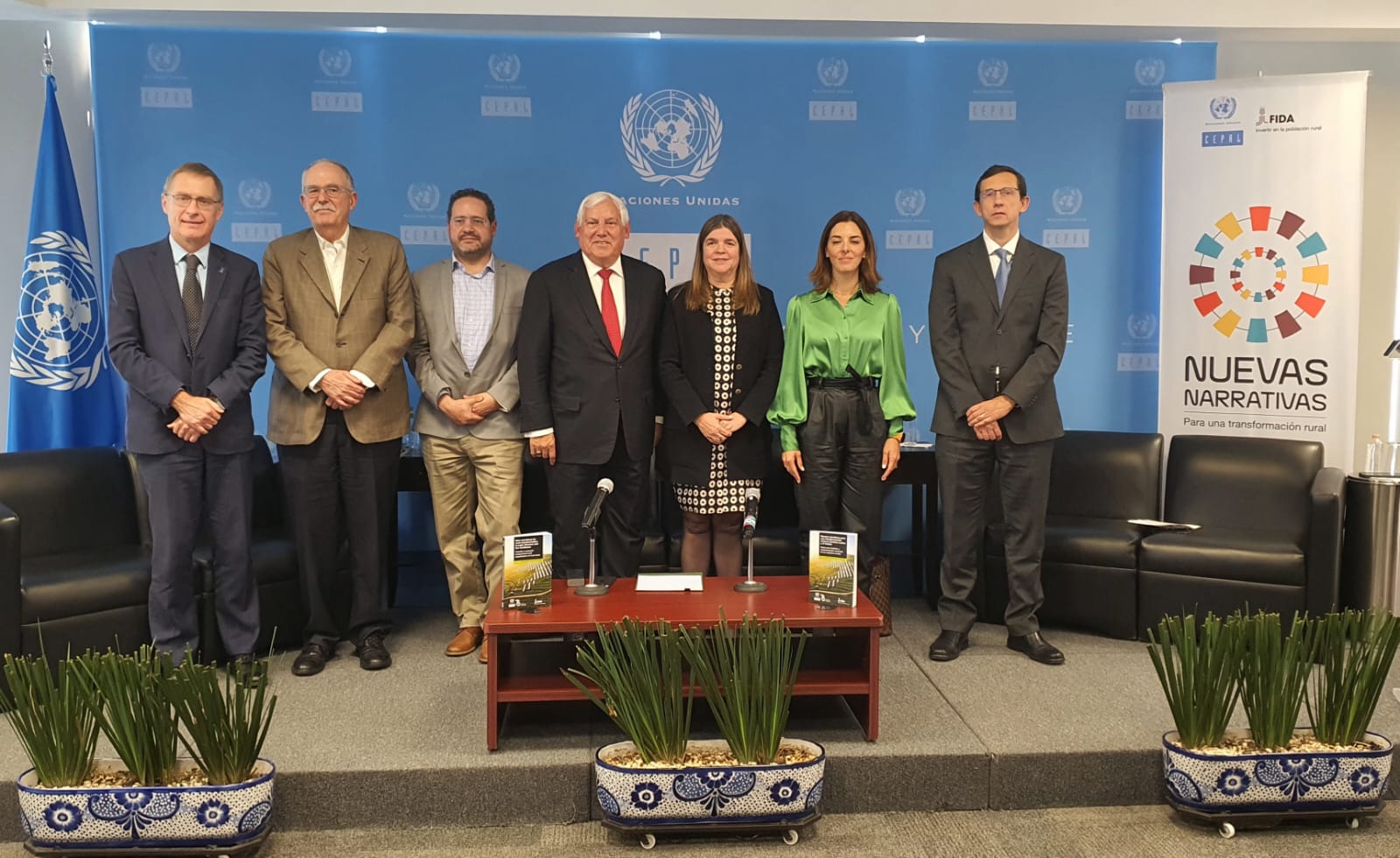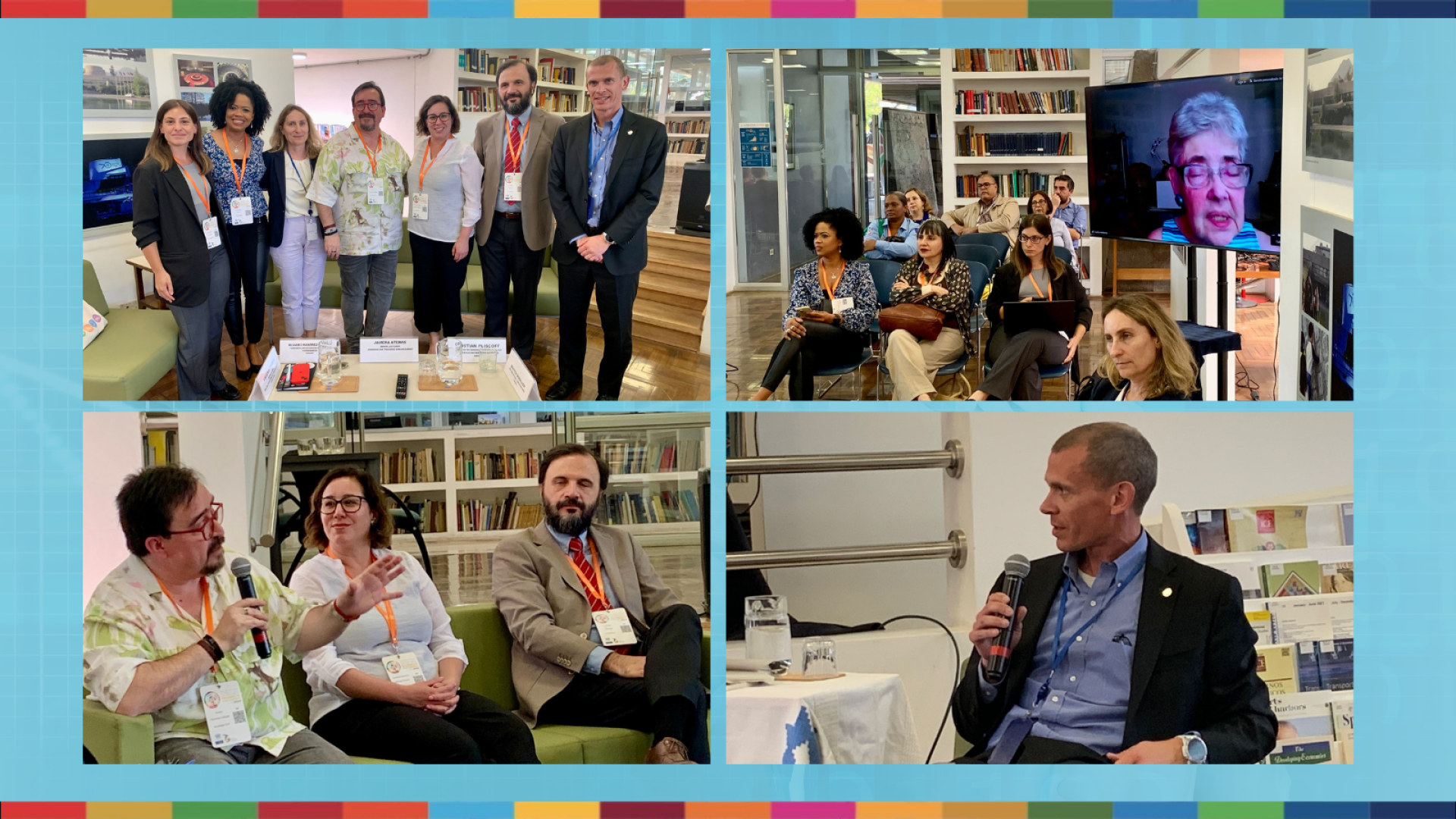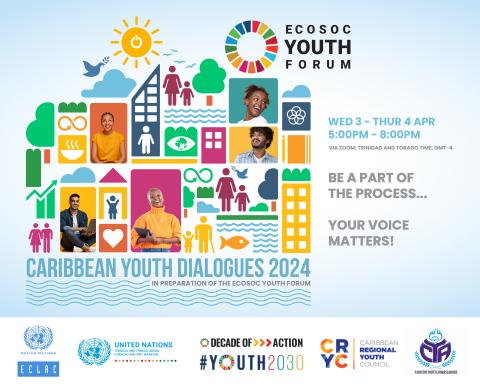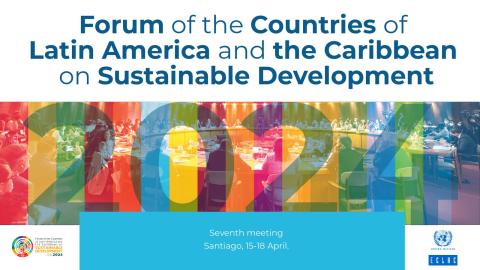Briefing note
(January 16, 2024) The Economic Commission for Latin America and the Caribbean (ECLAC) and the International Fund for Agricultural Development (IFAD) propose a new approach to the concept of rurality in Mexico and Latin America with the aim of targeting public action to reduce inequalities and make progress on attaining the Sustainable Development Goals.
The new rurality poses that it is necessary to overcome the traditional perspective that contrasts rural and urban areas, recognizing the existence of different degrees of rurality in territories and of greater interaction between them.
At a panel of experts gathered at ECLAC’s Subregional Headquarters in Mexico, the new methodologies and tools for measuring rurality contained in the book New Narratives for Rural Transformation in Latin America and the Caribbean – prepared by ECLAC and financed by IFAD – were presented.
The Mexican Secretary of Agriculture and Rural Development, Víctor Villalobos, thanked ECLAC and IFAD for having taken the initiative to create methodologies for understanding today’s rurality and for the efforts they have made to raise Mexican authorities’ awareness regarding the need to change the methodology that has been used in that country for more than 30 years.
The Associate Vice-President of IFAD’s Programme Management Department, Donal Brown, highlighted the results of the joint work carried out by IFAD and ECLAC. “This new approach to rurality must reflect the diverse and dynamic nature of rural spaces, which are in continual transformation and interaction with other areas. In addition, it lays the foundation for improving the rural population’s living conditions,” he sustained at the event.
The Project Director and Head of the Economic Development Unit at ECLAC’s Subregional Headquarters in Mexico, Ramón Padilla, stressed the strong participatory and capacity-building component. Each stage of the initiative promoted dialogue and the participation of public officials and academics, with a view to ensuring its relevance and pertinence along with the adoption of results, the strengthening of local capacities, and long-term sustainability.
Meanwhile, the Regional Director for IFAD’s Latin America and the Caribbean Division, Rossana Polastri, referred to the importance of deeply understanding the narratives and processes that make up rurality in order to improve the efficacy of policies and public spending.
“The Project seeks to replace the dominant narrative, which is reductionist and marginalizing, of rural areas as static and backwards, with another that recognizes the challenges and opportunities of the new rurality,” Polastri said.
The study analyzes the limitations of current measurements of rurality in Latin America, which largely offer a dual reading, meaning they only consider two types of territories: urban or rural. This approach tends to underestimate the importance of the rural world and does not recognize the existence of a great diversity of intermediate spaces, or the demographic, economic and environmental transformations that rural areas have undergone in recent decades. In the case of Mexico, which was analyzed at the event, localities with fewer than 2,500 inhabitants are defined as being rural, while those with more than 2,500 residents are considered urban.
For Mexico, new indicators are proposed that could be used with existing official information and that incorporate different variables for characterizing what is rural, such as the distance to urban centers, access to goods and services, the types of predominant occupations, and land use.
The proposed methodologies allow for overcoming the perspective that contrasts what is rural and what is urban and will help focus public action on priority areas, since within rural territories, those areas with greater needs can be identified. Thus, a redefinition that recognizes the heterogeneity and richness of rural spaces creates opportunities for designing rural development public policies that can accelerate fulfillment of the Sustainable Development Goals (SDGs).
The ECLAC-IFAD project chooses to view rurality as an innovative path to development for territories, leaving behind the idea that urbanization and industrialization are the only pathways for achieving development.
With the growing need to address the impact caused by climate change, rural areas – which are richer in natural resources – are better equipped to be a fundamental part of the solution to the climate crisis. As a result, they must be put at the center of attention of public policies.
Participating in the panel that analyzed the study were Mexican officials Paloma Merodio, Vice President of INEGI; Rodrigo Jiménez, Coordinator of Planning and Development at the National Population Council; and rural development specialist Julio Berdegué.
Supporting material:
View the full panel here
Video: ECLAC-IFAD New Rurality Project
Infographics:
- Infographic: New Narratives for Rural Transformation
- Infographic: New Narratives for Rural Transformation in Latin America and the Caribbean: Renewed Measurement and Characterization of Rural Spaces
Media contacts:
María Luisa Díaz de León: marialuisa.diaz@cepal.org / Roberto González Jiménez: r.gonzalezjimenez@ifad.org



